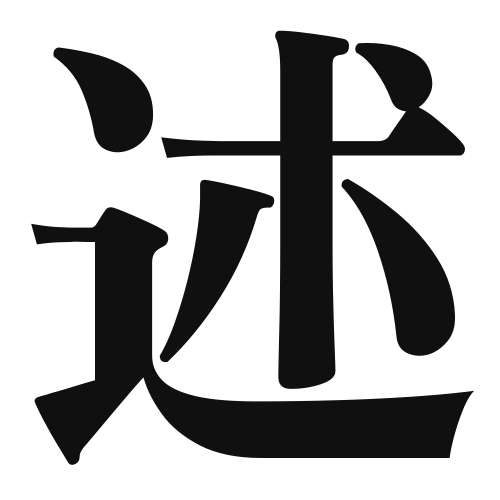1. Overview of Meaning
The kanji “述” (shutsu) means “to state,” “to mention,” or “to describe.” It is often used in contexts where one is expressing thoughts, opinions, or information.
2. Formation and Radical
Formation of the Kanji: The kanji “述” is a compound character (会意文字) that combines elements to convey its meaning. It consists of the radical “言” (gen), which relates to speech or words, and the phonetic component “出” (shutsu), which contributes to its pronunciation.
Radical: The radical of “述” is “言” (gen), indicating its connection to language and communication.
3. Examples of Usage
Common Words and Phrases: Some frequently used words that include “述” are “述べる” (noberu – to state) and “述語” (jutsugo – predicate).
Example Sentences in Daily Conversation:
- 彼は自分の意見を述べた。 (Kare wa jibun no iken o nobeta.) – He stated his opinion.
- この問題について述べる必要があります。 (Kono mondai ni tsuite noberu hitsuyou ga arimasu.) – We need to describe this issue.
4. Synonyms and Antonyms
Similar Kanji: A similar kanji is “言” (gen), which also relates to speech but is more general. “述” specifically implies a more formal or detailed expression.
Opposite Kanji: An antonym could be “隠” (in – to hide), which conveys the opposite action of not expressing or stating something.
5. Cultural and Historical Background
Connection to Japanese Culture: The kanji “述” is often used in formal writing and academic contexts, reflecting the importance of clear communication in Japanese culture.
Proverbs and Idioms: One relevant idiom is “言うは易く行うは難し” (Iu wa yasuku okonau wa muzukashi), which means “It’s easy to say, but hard to do,” emphasizing the importance of not just stating something but also taking action.
